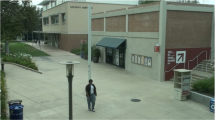Abstract
Fast motion video sequence processing is quite difficult. In order to improve the effect of fast motion video sequence processing, this paper improves the traditional codebook model algorithm and proposes an improved codebook model algorithm. Moreover, this paper analyzes and summarizes the development and application of background modeling-based methods in moving target detection, and points out the applicability and limitations of traditional methods, which lays the foundation for the further research of moving target detection based on background modeling in the complex background. In addition, this paper analyzes the characteristics of fast motion videos, and combines deep learning algorithms to improve the feature recognition effect of fast motion video sequences. Finally, this paper verifies the effect of this method through experimental research. Through experimental research, we know that the improved algorithm proposed in this paper can realize effective processing of fast motion video, and can improve the feature recognition effect of motion video frames.

















Similar content being viewed by others
Explore related subjects
Discover the latest articles, news and stories from top researchers in related subjects.References
Barbosa T (2018) Smart sport equipment: reshaping the sports landscape. Motricidade 14(2–3):1–2
Riley AH, Callahan C (2019) Shoulder rehabilitation protocol and equipment fit recommendations for the wheelchair sport athlete with shoulder pain. Sports Med Arthrosc Rev 27(2):67–72
Emery CA, Pasanen K (2019) Current trends in sport injury prevention. Best Pract Res Clin Rheumatol 33(1):3–15
Shulyatyev VM, Bulavina MA (2019) Sport interview: strategy, design and content. Theory Pract Phys Cult 9:18–18
Ferguson LJ, Carlson KT, Rogers D (2019) Moving towards reconciliation through sport: Sharing our process of exploring team saskatchewan experiences at the North American Indigenous Games. J Exerc, Mov, Sport (SCAPPS Refer Abstr Repos) 51(1):99–99
Kimasi K, Shojaei V, Boroumand MR (2019) Investigation of safety conditions at gymnasia in different organizations. J Hum Insights 3(02):70–74
Reinhart K, Wichmann B (2020) The TuS Fortschritt Magdeburg-Neustadt (soccer section) in the GDR–an example of amateur socialist sport. Soccer Soc 21(4):408–420
Abanazir C (2019) E-sport and the EU: the view from the English Bridge Union. Int Sports Law J 18(3):102–113
Gerke A, Babiak K, Dickson G et al (2018) Developmental processes and motivations for linkages in cross-sectoral sport clusters. Sport Manag Rev 21(2):133–146
Pogrebnoy AI, Komlev IO (2018) Sport institutions reporting to Ministry of Sport of Russian Federation: intellectual property, invention activity, patenting and legal consulting service analysis. Theory Pract Phys Cult 2:2–2
Ilies DC, Buhas R, Ilies M et al (2018) Sport activities and leisure in Nature 2000 protected area-Red Valley, Romania. J Environ Prot Ecol 19(1):367–372
Kondrukh AI (2017) Practical shooting sport in Russian sport system: essential specifications and features. Theory Pract Phys Cult 5:27–27
Giulianotti R, Numerato D (2018) Global sport and consumer culture: an introduction. J Consum Cult 18(2):229–240
Gurinovich AG, Petrova GV (2019) Key priorities of physical education and sport sector budgeting laws and regulations in the Russian Federation. Theory Pract Phys Cult 4:34–34
Mountjoy M, Costa A, Budgett R et al (2018) Health promotion through sport: international sport federations’ priorities, actions and opportunities. Br J Sports Med 52(1):54–60
Pulido JJ, Sánchez-Oliva D, Sánchez-Miguel PA et al (2018) Sport commitment in young soccer players: a self-determination perspective. Int J Sports Sci Coach 13(2):243–252
Cristiani J, Bressan JC, Pérez BL, et al. (2017) Clubs socio-deportivos en un municipio brasileño: espacio, equipos y contenidos [Sport clubs in Brazil: facilities, equipment and content in][Clubes socio-esportivos em município brasileiro: Espaço, equipamentos e conteúdos]. E-Balonmano.com: Rev Cienc Deport 13(2):105–112
Happ E, Schnitzer M, Peters M (2021) Sport-specific factors affecting location decisions in business to business sport manufacturing companies: a qualitative study in the Alps. Int J Sport Manag Mark 21(1–2):21–48
Castro-Sánchez M, Zurita-Ortega F, Chacón-Cuberos R (2019) Motivation towards sport based on sociodemographic variables in university students from Granada. J Sport Health Res 11(1):55–68
Hadlow SM, Panchuk D, Mann DL et al (2018) Modified perceptual training in sport: a new classification framework. J Sci Med Sport 21(9):950–958
Du Plessis JH, Berteanu M (2020) The importance of prosthetic devices in sport activities for Romanian amputees who compete in Paralympic competitions. Med Sport: J Roman Sports Med Soc 16(1):3197–3204
Stylianou M, Hogan A, Enright E (2019) Youth sport policy: The enactment and possibilities of ‘soft policy’in schools. Sport Educ Soc 24(2):182–194
Richmond SA, Donaldson A, Macpherson A et al (2020) Facilitators and barriers to the implementation of iSPRINT: a sport injury prevention program in junior high schools. Clinc J Sport Med 30(3):231–238
Ruihley BJ, Greenwell TC, Mamo Y et al (2019) Increase Customer retention: an examination of quality and its effects on the retention of sport participants. J Sport Behav 42(3):365–388
Funding
The Research is Supported by: 1. Henan Province Scientific and Technological Research Project "Design of Rangefinder for High-precision Field Competitions Based on the Internet of Things" in 2019 (Project Number: 192102310292); 2. This work was supported in part by the National Natural Science Foundation of China under Grants U1804152.
Author information
Authors and Affiliations
Corresponding author
Ethics declarations
Conflict of interest
The authors declared that they have no conflicts of interest to this work. We declare that we do not have any commercial or associative interest that represents a conflict of interest in connection with the work submitted.
Additional information
Publisher's Note
Springer Nature remains neutral with regard to jurisdictional claims in published maps and institutional affiliations.
Rights and permissions
About this article
Cite this article
Zhou, K., Zhang, Z., Yuan, R. et al. A deep learning algorithm for fast motion video sequences based on improved codebook model. Neural Comput & Applic 35, 4353–4368 (2023). https://doi.org/10.1007/s00521-022-07079-7
Received:
Accepted:
Published:
Issue Date:
DOI: https://doi.org/10.1007/s00521-022-07079-7




